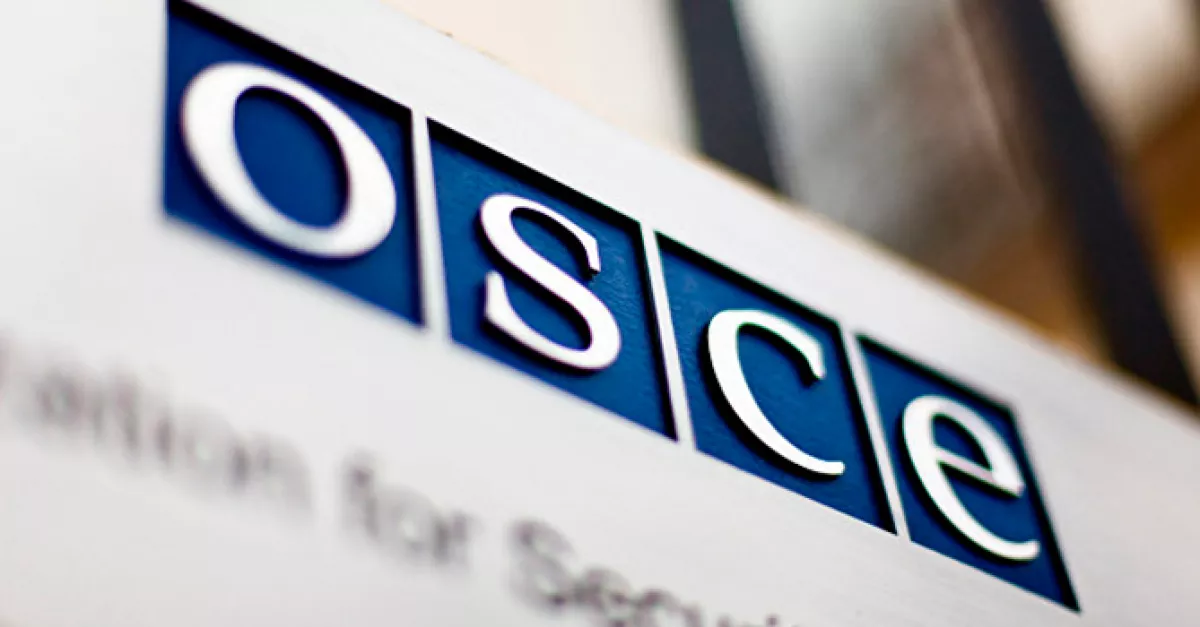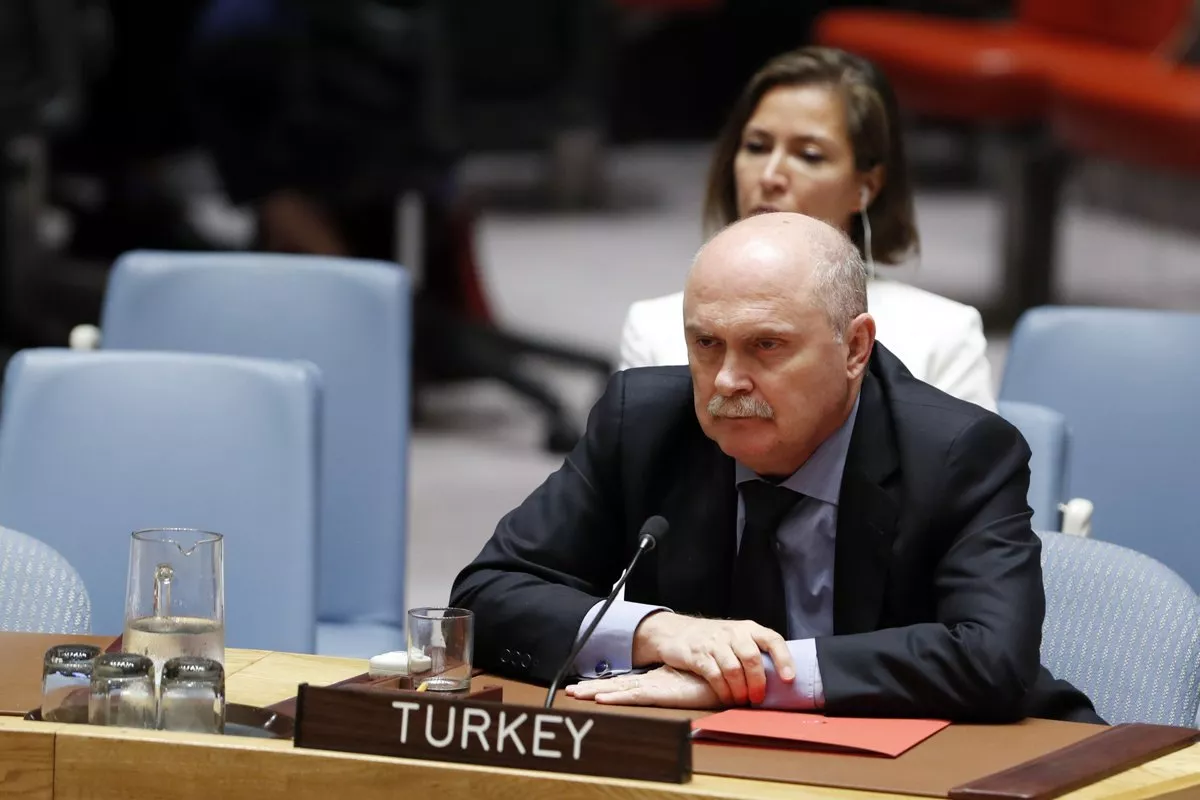OSCE: Balancing on the brink of collapse Ministerial Council grapples with deep divisions
The recent meeting of the OSCE Ministerial Council has ensured the organization's survival for at least another year. However, it has once again highlighted that the contradictions between many member states remain so deep that the 50th anniversary of the Helsinki Final Act could very well signal the end of the OSCE.
On December 5-6, the 31st OSCE Ministerial Council took place in the capital of Malta, Valletta. In the language of the Organization for Security and Cooperation in Europe, this is the key annual event—the meeting of the Foreign Ministers' Council. Traditionally, at the end of each year, the foreign ministers of the 57 OSCE member states convene in the country holding the chairmanship for that year to review the work of the past year, set out future plans, and make essential decisions.
In principle, this is the only tradition that is still consistently observed within the OSCE, the largest regional security organization in the world, which brings together countries from Europe, Central Asia, and North America with a total population of over 1 billion people.
Total security crisis based on cooperation
In recent years, the OSCE has been in a total and, at times, seemingly hopeless crisis. This organization became the successor to the legendary Helsinki process and the Conference on Security and Cooperation in Europe (CSCE) that emerged from it. With the end of the Cold War, the Paris Charter for a New Europe proclaimed a "new era of democracy, peace, and unity" in November 1990. The heads of state and government who signed it declared that "the era of confrontation and division of Europe has ended" and that henceforth their relations will be based on “respect and cooperation.” This became the documentary reflection of a new security concept, based not on mutual deterrence, but on cooperation.
The flourishing diplomacy of the early 1990s made it possible to transform the CSCE into the OSCE. In other words, based on a multi-faceted diplomatic process, an international organization was created with the goal of shaping European security on fundamentally new principles and approaches. Incidentally, it was the Charter of Paris that initiated the annual meeting of the Foreign Ministers' Council on continental security.

A quarter of a century after the fanfare surrounding the Paris Charter and five decades after the signing of the historic Helsinki Final Act of 1975, little trace of the optimism surrounding cooperation-based European security remains. The OSCE is not just in total crisis, but seems to be in a historical deadlock. For the past decade, each new Ministerial Council meeting has noted the growing rift in both the European security system as a whole and the OSCE as the main institutional expression of that system. The organization increasingly resembles a walking dead, especially after the onset of the Russia-Ukraine war.
It is telling that in recent years, no substantial documents have been adopted at the Ministerial Council meetings. It is also significant that, since September of this year, the OSCE has been functioning without full leadership of its Secretariat and specialized bodies.
For more than five years, the future of the organization has hung by a thread before each Ministerial Council meeting. At a minimum, for its basic functioning, it is necessary to reach a consensus among all 57 participating countries on several organizational issues. First, the approval of the chairing country for the following year (or ideally for two years ahead, as traditionally, the organization's steady development was ensured through the so-called "troika," which includes the past, current, and future chairing countries). Second, the appointment of a key official—the Secretary-General. Third, the selection of heads of thematic institutions: the head of the Office for Democratic Institutions and Human Rights (ODIHR), the High Commissioner on National Minorities, and the Representative on Freedom of the Media. Fourth, the approval of the organization's unified budget.
Since decisions within the OSCE are made by consensus, it only takes one country to refuse to sign an agreement for it to be unable to be approved. As Russian Foreign Minister Sergey Lavrov emphasized in his speech in Valletta, "the OSCE exists only as long as there is consensus and as long as each country is guaranteed to have its interests taken into account. Now, there is neither consensus, nor guarantees left."
Save, but not destroy
In the same speech, the head of Russian diplomacy called the OSCE in its current form "meaningless": " There is not a single sphere in which the OSCE could play even a marginally useful role in finding answers to direct questions within its terms of reference." Ministers from other member states were less categorical in their statements, but in substance, most of their points at the plenary session boiled down to the same idea.
At the same time, it is noteworthy that virtually all heads of national delegations and representatives of the OSCE Secretariat at the Ministerial Council in Malta voiced the opposite thesis about the need to preserve the organization. Lavrov, in a separate press conference, said that Moscow still does not know how to proceed with its participation in the organization. The very fact that Russia has not formally withdrawn from the OSCE also indicates that Russian diplomacy still recognizes the value that the OSCE retains.
The idea of the organization’s unique value as the only mechanism for inclusive dialogue on the entire spectrum of European security issues was echoed from one speech to the next in Valletta. Many speakers emphasized the critical importance of continuing such dialogue even during the most difficult periods. One could, of course, argue that, unfortunately, in practice and in real actions, the desire to preserve the OSCE on the part of the governments of the participating states is not evident. However, the Ministerial Council in Malta ultimately managed to reach a consensus on the appointment of key officials. This, in itself, is an achievement and reflects at least a minimal collective desire to preserve the organization under the current circumstances.

The new Secretary General of the OSCE is former Turkish Foreign Minister Feridun Sinirlioğlu. Given the increasingly prominent role and ambitions of Turkish diplomacy in recent times, this appointment is not surprising. Moreover, it offers a glimmer of hope that Ankara’s constructive foreign policy energy might play a positive role for the OSCE.
The vacancies for the heads of thematic institutions were also filled. Maria Telalian from Greece was appointed director of the Office for Democratic Institutions and Human Rights (ODIHR). Christophe Kamp from the Netherlands became the OSCE High Commissioner on National Minorities, and Jan Braathu from Norway was named the OSCE Representative on Freedom of the Media.
The current OSCE chair will be Finland's Foreign Minister. This is somewhat a result of a coincidence, as the decision was made back at the Ministerial Council in December 2021, when Finland was a neutral country and was viewed more positively by Russia. The idea was that, in the 50th anniversary year of the signing of the Helsinki Final Act, the Finnish chairmanship could further emphasize the importance of returning to a security concept based on cooperation. However, since late 2021, much has changed in European security. Yet, that decision remained in force and provided the OSCE with at least another year of somewhat effective functioning, in terms of its core institutions.
Real political will and historical dilemmas
How the OSCE will fare in the anniversary year of the Helsinki agreements, and whether it has a future beyond 2025, remains to be seen. More accurately, it will depend on the real will of the member states to demonstrate strategic maturity and political resolve to transform declarations about the importance of inclusive security into a diplomatic reality.
At the same time, honestly speaking, the prospects for the OSCE's survival do not seem particularly optimistic. Its case appears to be more complicated than that of the UN. As we suggested recently, the UN, in order to preserve itself and remain a key element of global security in times of heightened turbulence in world affairs, needs to "reset to factory settings." In the case of the OSCE, however, this is not possible, because the systemic problem in its functioning was embedded right from its "factory settings."
For instance, the very Helsinki Decalogue adopted in 1975 contains an irreconcilable dilemma: it simultaneously proclaims the principle of territorial integrity of states and the right of peoples to self-determination. In recent decades, another dilemma has emerged sharply, which is, in fact, the root cause of the war between Russia and Ukraine. It comes down to the irreconcilable contradiction between the principle of indivisible security and the right of states to independently choose their alliances and ways to ensure their own security. In this regard, a high-ranking EU official is completely wrong in claiming, in his final speech at the Ministerial Council, that "the crisis we face does not indicate any shortcomings in the rules or principles of the European security system, nor a failure of the OSCE."
The OSCE can only be preserved if diplomats and experts come up with breakthrough and innovative approaches to shed the burden of these dilemmas. If this is possible, the OSCE will not only survive but also be reborn as a new symbol and pillar of European security. The authors of such new approaches and principles should be awarded all the Nobel Peace Prizes.








